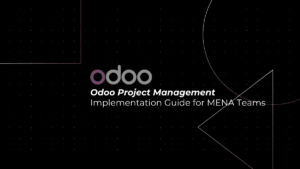Table of Contents
ToggleTable of Contents
- Introduction: The NLP Revolution
- Understanding NLP: Core Concepts
- Key NLP Techniques for AI Business Integration
- 6 Transformative NLP Applications in Information Technology
- The Future of NLP: Emerging Trends and Predictions
- Implementing NLP: A Strategic Roadmap
- Conclusion: Embracing NLP in the Digital Era
- Call to Action
Introduction: The NLP Revolution
In the fast-paced world of digital transformation, Natural Language Processing (NLP) is revolutionizing how businesses interpret and leverage data. As a key component of Artificial Intelligence (AI), NLP enables machines to understand, interpret, and generate human language, fostering more intelligent systems and creating new opportunities for innovation. It’s not just about technology—NLP is a strategic tool that enhances business capabilities.
Understanding NLP: Core Concepts
Defining Natural Language Processing
NLP is an advanced AI branch focused on the interaction between computers and human language. It helps machines:
- Read and understand human language
- Interpret context and sentiment
- Generate human-like text
- Translate between languages
- Analyze and extract meaningful information from unstructured data
Key Components of NLP
- Linguistic Analysis
- Syntax parsing: Understanding sentence structure
- Semantic understanding: Grasping meanings and relationships
- Grammatical structure interpretation: Identifying parts of speech and relationships
- Machine Learning Algorithms
- Neural networks
- Deep learning models
- Predictive language modeling
- Data Processing Techniques
- Tokenization: Breaking text into manageable chunks
- Named entity recognition: Identifying proper nouns (e.g., companies, dates)
- Sentiment analysis: Determining emotional tone in text
Key NLP Techniques for AI Business Integration
Tokenization and Language Modeling
- Technical Overview: Breaks text into meaningful units and predicts contextual word sequences.
- Business Applications:
- Intelligent search engines
- Predictive text technologies
- Content recommendation systems
Sentiment Analysis and Opinion Mining
- Capabilities:
- Analyzing emotional tone in customer feedback
- Detecting customer satisfaction
- Monitoring brand sentiment
- Strategic Implementations:
- Social media monitoring
- Customer feedback analysis
- Market research insights
6 Transformative NLP Applications in Information Technology
1. Intelligent Chatbots and Customer Experience
- Technology Capabilities:
- 24/7 customer support
- Personalized interaction
- Multilingual communication
- Implementation Strategies:
- Rule-based systems
- Machine learning adaptations
- Continuous learning models
2. Automated Translation and Global Communication
- Breaking Language Barriers:
- Real-time translation
- Cross-cultural communication
- Enterprise globalization
- Advanced Features:
- Context-aware translations
- Dialect recognition
- Cultural sensitivity algorithms
3. Predictive Text and Content Generation
- AI-Driven Content Strategies:
- Automated report generation
- Personalized content creation
- Dynamic communication platforms
- Ethical Considerations:
- Transparency in AI-generated content
- Maintaining human oversight
- Preventing misinformation
4. Advanced Information Retrieval
- Enterprise Knowledge Management:
- Intelligent search capabilities
- Document classification
- Information extraction
- Efficiency Improvements:
- Reduced research time
- Enhanced decision-making
- Comprehensive data analysis
5. Speech Recognition and Voice Technologies
- Emerging Trends:
- Voice-activated interfaces
- Accessibility technologies
- Hands-free computing
- Industry Applications:
- Healthcare documentation
- Automotive interfaces
- Smart home technologies
6. Compliance and Risk Management
- Regulatory Monitoring:
- Automated compliance checking
- Fraud detection systems
- Legal document analysis
- Data Privacy Implications:
- Intelligent risk assessment
- Automated reporting
- Proactive threat detection
The Future of NLP: Emerging Trends and Predictions
Technological Convergence
- Integration with computer vision
- Enhanced contextual understanding
- Rise of multimodal AI systems
Ethical AI Development
- Transparent algorithms
- Bias reduction techniques
- Responsible AI frameworks for fairness
Potential Industry Disruptions
- Personalized education
- Advanced healthcare diagnostics
- Autonomous customer service
Implementing NLP: A Strategic Roadmap
Assessment Frameworks
- Current technological infrastructure review
- Business process analysis
- Skill gap identification in teams
Technology Selection
- Vendor evaluation
- Scalability considerations
- Integration capabilities with existing systems
Change Management
- Employee training programs
- Cultural adaptation within teams
- Continuous learning programs
Conclusion: Embracing NLP in the Digital Era
Natural Language Processing (NLP) represents a transformative force in AI, offering businesses unprecedented opportunities to enhance communication, automate tasks, and unlock new levels of intelligent interaction. The integration of NLP is not just a technological upgrade—it is a strategic investment that can revolutionize business operations.
Ready to leverage NLP for your business transformation? PyramidBITS can help your organization integrate NLP technologies to drive digital innovation and improve operational efficiency.
- Contact PyramidBITS for consultation on NLP implementation



